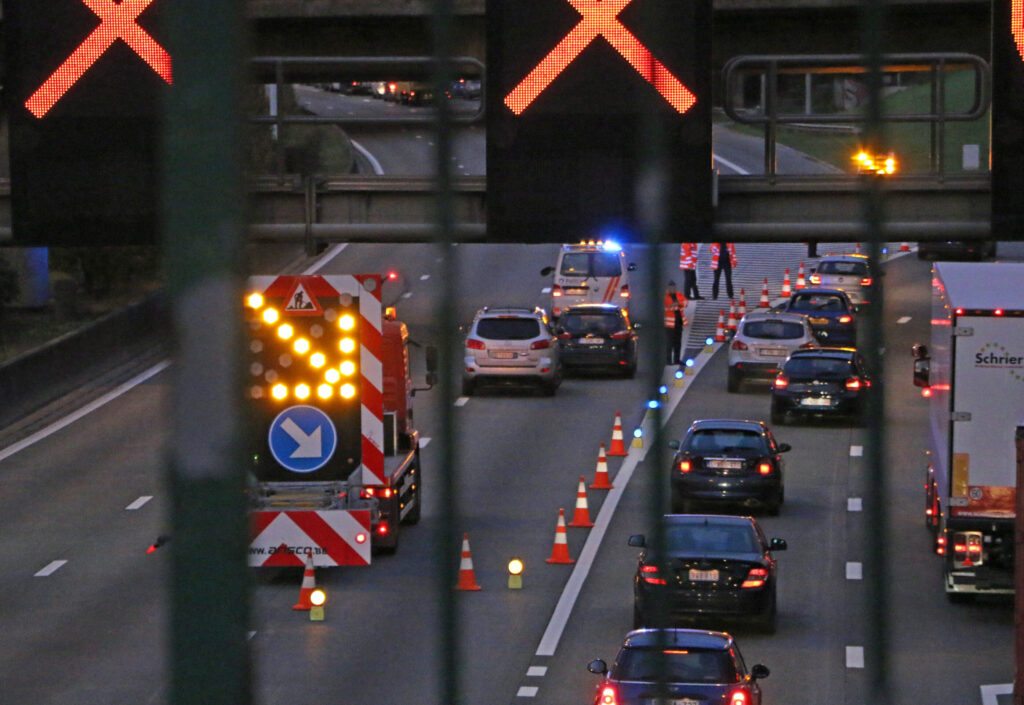While 22 EU Member States already use a points-based driving licence, Belgium is among the few countries lagging behind in not using this system. It has been the subject of discussion since the 1990s, but N-VA leader Bart De Wever is now putting it on the Federal Government formation table again.
Federal formator De Wever wants to include the introduction of a points-based driving licence in the country's coalition agreement. While the Flemish parties have been in favour of the system for quite some time, the Francophone side is less convinced.
Belgium's road safety institute (Vias) carried out several studies on the topic and is in favour of the scheme as well. "Such a points-based system identifies people who often commit traffic offences more quickly," Stef Willems, spokesperson for Vias, told The Brussels Times.
In a points-based system, an offence – depending on its severity – takes one or more points off your total. Drivers who have lost a certain number of points can lose their driving licence or face further sanctions.
Impunity for repeat offences
"In the short term, this can bring about a big drop in road casualties. Recent studies also point to a positive change in behaviour from the moment people have a few points left before losing their licence," he said. "The signal you send as a society is necessary and clear: impunity for repeated offences is not acceptable."
Vias is in favour of a points-based driving licence that works in stages: after a few (minor) offences, an alternative measure such as a visit to a rehabilitation centre for traffic victims, for example, is imposed first. If the driver continues to commit offences, a judge imposes a driving ban but should also decide whether further sanctions are necessary.
Belgium already approved the principle of a driving licence with points in 1990, under then-Transport Minister Jean-Luc Dehaene (CVP, which later became CD&V). Despite a form of such a system currently existing in 22 of the 28 EU Member States, the Federal Government never introduced it.

MR leader Georges-Louis Bouchez. Credit: Belga/Lauria Dieffembacq
This is because the system invariably meets resistance from the French-speaking parties. In the current outgoing Federal Government, there was also an attempt to introduce the system after a study showed its positive impact on road safety, but the Francophone socialists (PS) and liberals (MR) rejected the idea.
According to MR – Wallonia's election winner and now a major player in the Federal Government negotiations – a points-based driving licence leads to an increase in the number of drivers driving without a licence and disadvantages professionals who are often on the road.
However, Vias refutes these arguments. "It is not like these professionals now have a different sort of driving licence that permits them to drive 70km/h in a zone 50. Additionally, most people in Belgium have to be on the road for work twice a day, so that would make all of them professionals."
"Belgium is too small to even gain 15 minutes on your way to work by driving too fast," Willems said. "We should ask these people to adjust their behaviour instead of saying: we should not introduce the system because there is this group of people that will still drive too fast. It seems a bit contradictory."
Francophone reluctance
Several studies have also refuted that a points-based system would lead to more people driving without a licence. France, for example, introduced the system in 1992 but French media now report that a record number of drivers are currently driving without a licence.
"Both in Belgium and France, there are drivers who drive without a valid licence. But that proportion has not changed or increased after the introduction of a driving licence with points," Willems explained. "That does not take away from the fact that it is a problem and something needs to be done about it. But it separate from the points system."
Still, these reports have resulted in harsh criticism of the scheme in France. "This is largely because France works with a blind system. This means that drivers who have lost all the points on their licence are all punished in the same way – no matter the offences they committed to get to that point," he said.
Related News
- Wallonia wants to introduce 'road vignette': What does it mean?
- One in six drivers tested positive for multiple drugs in Belgium in 2023
- 'Speed remains biggest killer': Record number of traffic fines handed out by police
Someone who gets to 0 after losing a point for repeatedly driving 65 km/h in a 50 Zone over time should not be punished in the same way as someone who got there by driving under the influence and being on their phone behind the wheel. "But we do not want a blind system. Police judges should set punishments based on what is in front of them and look at every situation to impose the appropriate punishment."
However, in Wallonia – which often looks to France on political matters – the French headlines about record numbers of drivers without a licence likely play a role.
The working group on mobility in the Federal Government negotiations – of which Vias is not part – has now met twice and Francophone centrists Les Engagés, but especially MR, showed great reluctance to introduce such a system, De Standaard reports.

